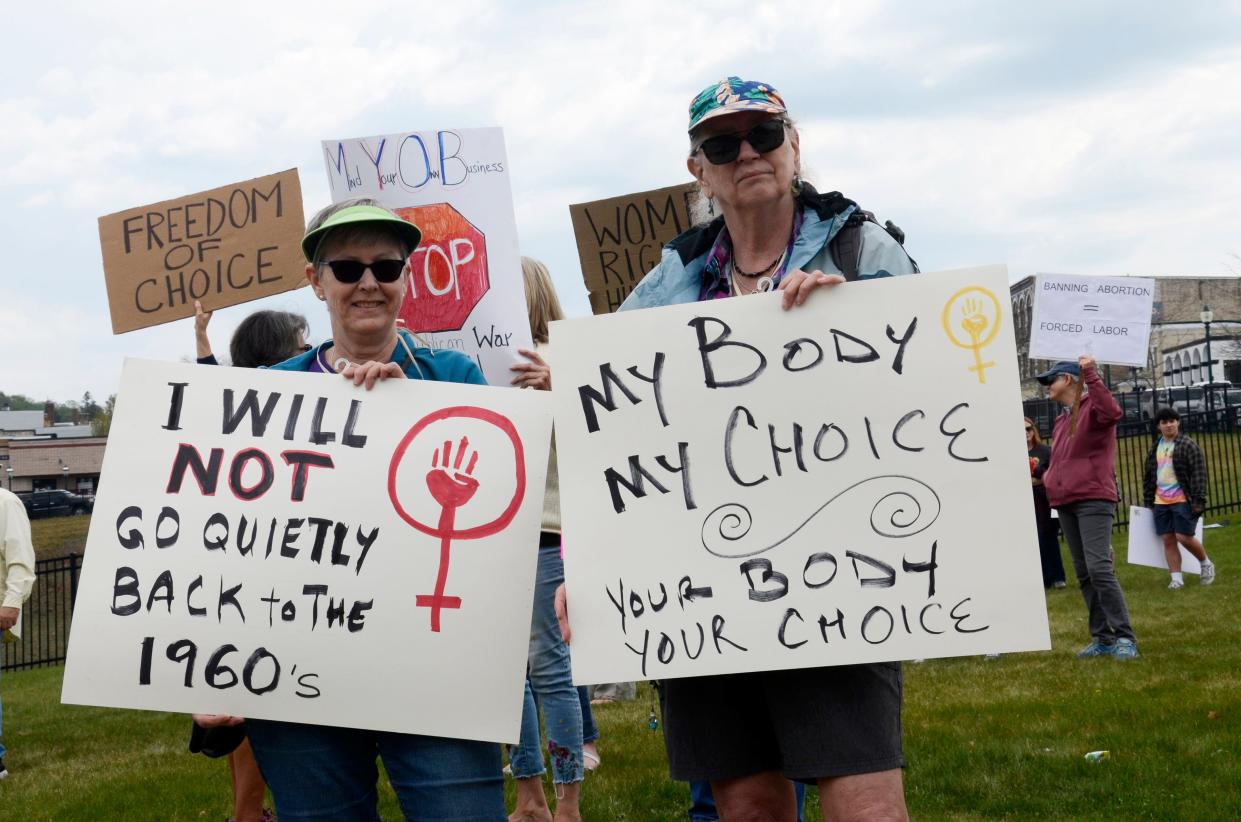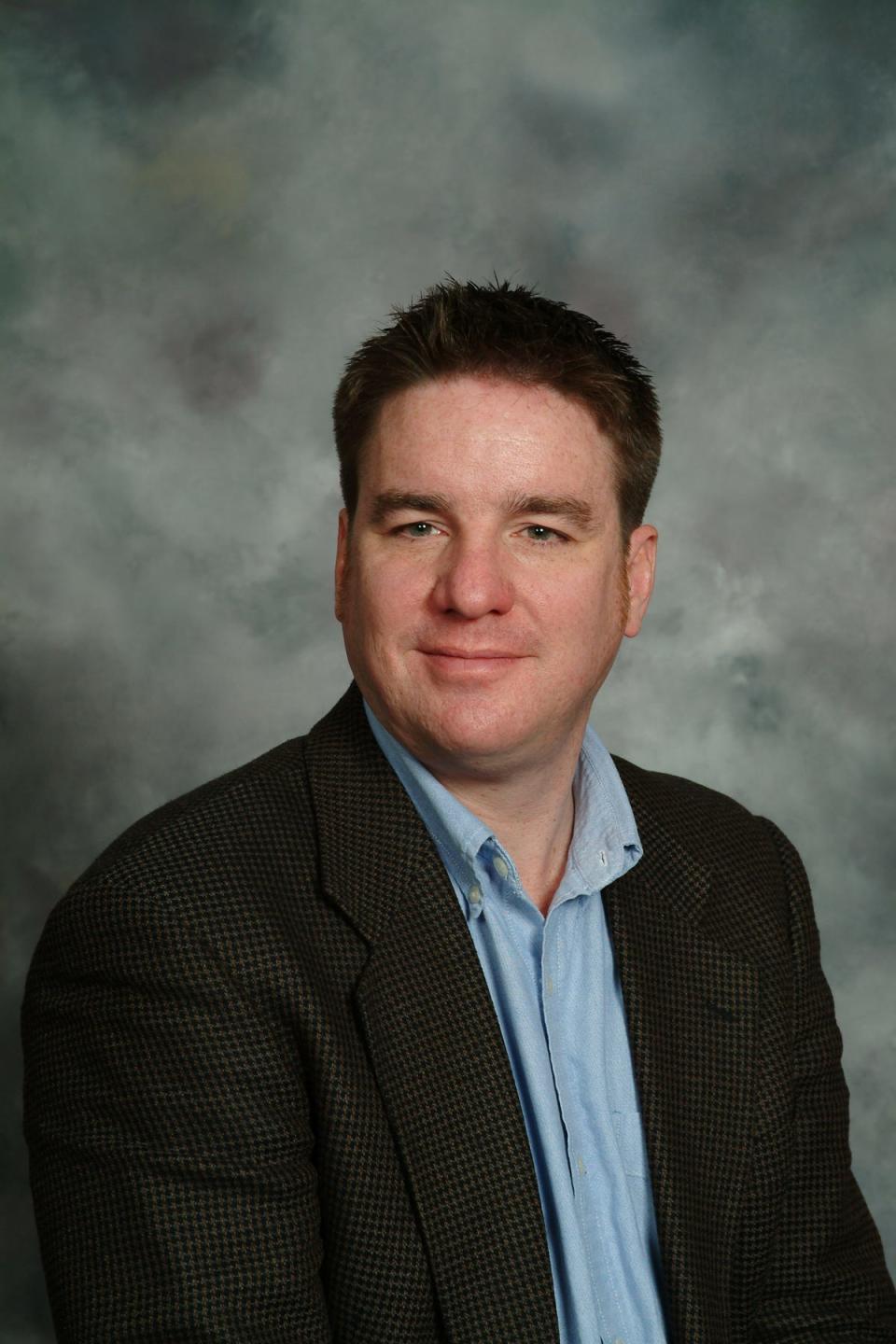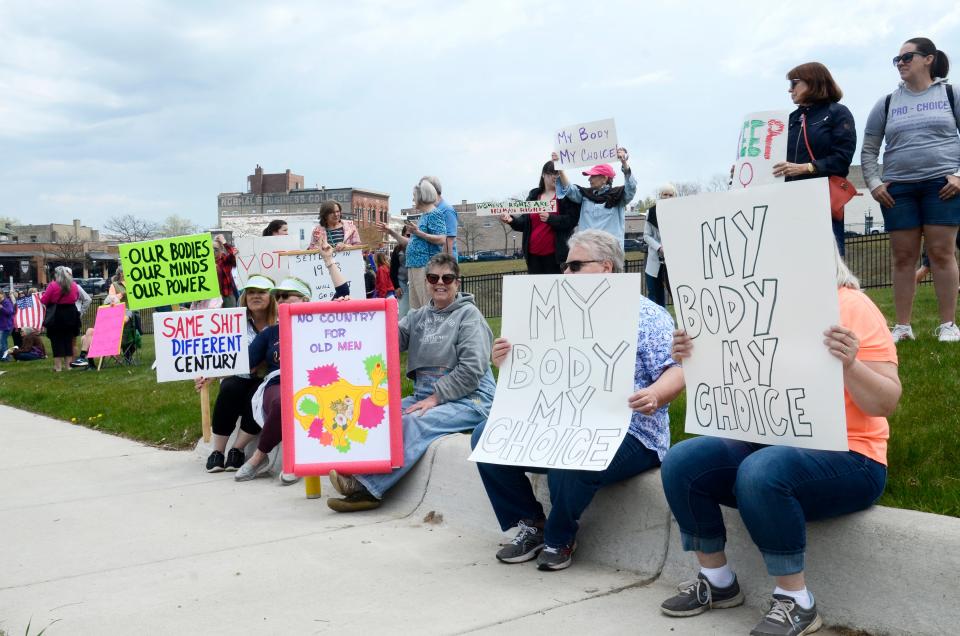Michigan law moves to forefront as high court weighs abortion decision

GAYLORD — Abortion is currently legal in Michigan because of the Roe v. Wade ruling from the U.S. Supreme Court. However, according to a leaked draft opinion written by Justice Samuel Alito, the nation's highest court is considering overturning the landmark 1973 decision.
If Roe v. Wade were to be overturned, a 1931 law banning abortion that is still on Michigan's books may take effect again. That law criminalizes abortion for anybody administering the procedure or drug to produce a miscarriage, making it a felony in all cases except when abortion is necessary to save the life of the mother.
On Tuesday, a Michigan Court of Claims judge issued a preliminary injunction against the 1931 abortion law, finding Planned Parenthood is likely to prevail in a lawsuit saying the law violates the state constitution. Under the ruling, the state could not enforce the 1931 law should Roe be overturned.
More: Michigan Court of Claims judge grants injunction against 1931 abortion law
More: Saturday rally in Petoskey shows support for pro-choice legislation

Brendan Beery, a professor at the Western Michigan University Cooley Law School, said the 1931 Michigan law appears to apply to those who perform an abortion.
"When you look at the law on the face of it, it really looks like it's supposed to punish people other than the woman (receiving an abortion). But it is written broadly enough that it could encompass a woman herself," Beery said.
Beery said the 1931 law said any person who uses any means to cause an abortion is guilty under the law.
"That certainly could make a woman vulnerable (to charges) if a woman participated in any way in causing an abortion. I think women have to be wary especially if they take medication to cause an abortion. It seems like that could be covered under the statute," said Beery.

Subscribe: Check out our offers and read the local news that matters to you
Catherine Archibald, a professor at the University of Detroit Mercy School of Law, believes that under a Supreme Court of Michigan interpretation of the 1931 law, a pregnant woman who procures an abortion can't be charged under the law.
"In 1963, the Supreme Court of Michigan interpreted the 1931 statute and answered the question of whether a woman seeking or obtaining an abortion could be charged under the statute," said Archibald. "The court stated that the law 'declares one guilty of a felony who, under certain circumstances, performs an abortion upon a woman. It does not provide that the woman herself shall be guilty of an offense. At common law she was not guilty of a crime even though she performed the aborting act upon herself or assisted or assented thereto. ... The majority view is that not only may she not be held for abortion upon herself but neither as an accomplice.'"
Archibald said only the state Supreme Court can overrule one of its prior decisions on a matter of state law. Until it does, all lower courts must follow the Michigan Supreme Court's prior ruling.
"I would be surprised if the Michigan Supreme Court changed its interpretation of the statute on this point, and I would also be surprised if a prosecutor tried to convince it to (change). The reason is because it is not needed for abortions to be effectively shut down in the state if Roe is overturned and the 1931 Michigan law comes into effect. As we've seen from the Texas Heartbeat Act, as soon as abortion becomes illegal in a state (in that case, after about six weeks of pregnancy), then abortion providers overwhelmingly comply with the law as they do not want to incur criminal or civil liability," she said.

Prosecutors have wide discretion in deciding whether to bring charges in any criminal case. Five prosecutors in Northern Michigan were contacted and asked to comment on the 1931 state law if Roe was overturned.
Robert Stratton III, the Chippewa County prosecuting attorney, Melissa Goodrich, prosecuting attorney for Cheboygan County, and James Linderman, Emmet County prosecuting attorney, didn't respond.
"I haven’t had a chance to specifically research the specifics of the 1931 law. Of course I’ve been following the story on the leak of the drafted opinion from the (U.S.) Supreme Court, but have not looked into the Michigan law as of yet, since it does not apply at this point and still may not in the future," said Allen Telgenhof, Charlevoix County prosecuting attorney.
"I would generally say that I believe that my job as a prosecutor is to enforce the laws passed by the legislature. We do have discretion on which cases to charge or not charge based on the circumstances of those cases and offenders, but I don’t think it is appropriate to state that certain laws won’t be enforced. Respectfully I don’t believe that is our job," added Telgenhof.
Michael Rola, Otsego County's prosecuting attorney, said "Although there was an apparently illegal leak of a draft of a February 2022 majority opinion, unless and until the written opinion of our United States Supreme Court is released and published, I don’t believe that it is appropriate to speculate on the possible application, and/or non-application of prior law in the State of Michigan."
"Regardless of my personal views as a pro-life Republican, I am and will continue to be, obligated to enforce the laws of the State of Michigan in Otsego County, as written by our legislature, and ruled on by our appellate courts," added Rola.
In April, Gov. Gretchen Whitmer filed a lawsuit in Oakland County Circuit Court asking the Michigan Supreme Court to declare the 1931 law contrary to the state constitution and enjoin prosecutors in the 13 Michigan counties that have abortion clinics from enforcing the law.
Content from the Detroit Free Press was used in this report
This article originally appeared on The Petoskey News-Review: Michigan law moves to forefront as high court weighs abortion decision

